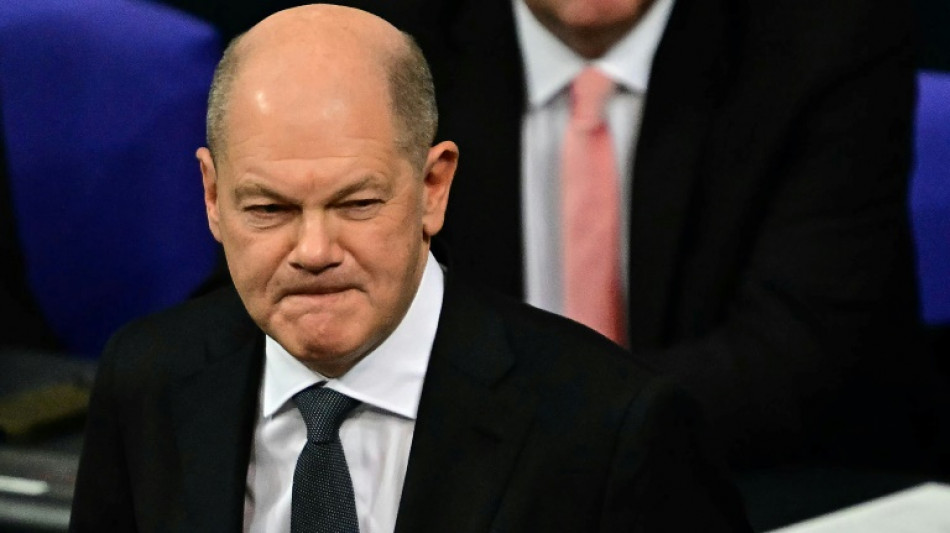
-
 Nigeria signals more strikes likely in 'joint' US operations
Nigeria signals more strikes likely in 'joint' US operations
-
Malaysia's former PM Najib convicted in 1MDB graft trial

-
 Elusive wild cat feared extinct rediscovered in Thailand
Elusive wild cat feared extinct rediscovered in Thailand
-
Japan govt approves record budget, including for defence

-
 Seoul to ease access to North Korean newspaper
Seoul to ease access to North Korean newspaper
-
History-maker Tongue wants more of the same from England attack

-
 Australia lead England by 46 after 20 wickets fall on crazy day at MCG
Australia lead England by 46 after 20 wickets fall on crazy day at MCG
-
Asia markets edge up as precious metals surge

-
 Twenty wickets fall on day one as Australia gain edge in 4th Ashes Test
Twenty wickets fall on day one as Australia gain edge in 4th Ashes Test
-
'No winner': Kosovo snap poll unlikely to end damaging deadlock

-
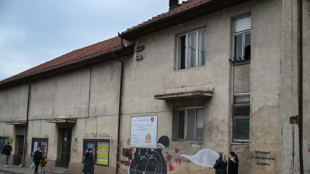 Culture being strangled by Kosovo's political crisis
Culture being strangled by Kosovo's political crisis
-
Main contenders in Kosovo's snap election
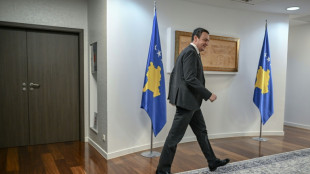
-
 Australia all out for 152 as England take charge of 4th Ashes Test
Australia all out for 152 as England take charge of 4th Ashes Test
-
Boys recount 'torment' at hands of armed rebels in DR Congo

-
 Inside Chernobyl, Ukraine scrambles to repair radiation shield
Inside Chernobyl, Ukraine scrambles to repair radiation shield
-
Bondi victims honoured as Sydney-Hobart race sets sail

-
 North Korea's Kim orders factories to make more missiles in 2026
North Korea's Kim orders factories to make more missiles in 2026
-
Palladino's Atalanta on the up as Serie A leaders Inter visit

-
 Hooked on the claw: how crane games conquered Japan's arcades
Hooked on the claw: how crane games conquered Japan's arcades
-
Shanghai's elderly waltz back to the past at lunchtime dance halls

-
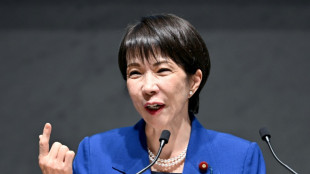 Japan govt approves record 122 trillion yen budget
Japan govt approves record 122 trillion yen budget
-
US launches Christmas Day strikes on IS targets in Nigeria

-
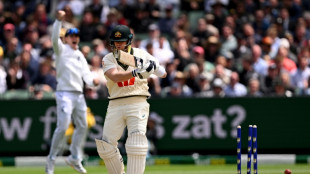 Australia reeling on 72-4 at lunch as England strike in 4th Ashes Test
Australia reeling on 72-4 at lunch as England strike in 4th Ashes Test
-
Too hot to handle? Searing heat looming over 2026 World Cup

-
 Packers clinch NFL playoff spot as Lions lose to Vikings
Packers clinch NFL playoff spot as Lions lose to Vikings
-
Guinea's presidential candidates hold final rallies before Sunday's vote
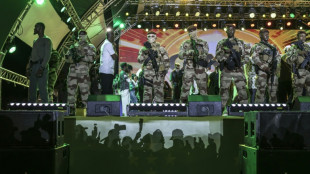
-
 A Christmas Message to the DEA's Diversion Anti Marijuana Cabal
A Christmas Message to the DEA's Diversion Anti Marijuana Cabal
-
QAT Community Sets QuantumTrade 5.0 for Public Beta Testing in March 2026
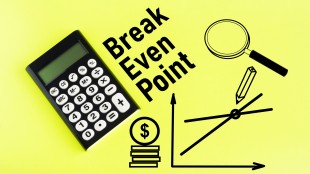
-
 BondwithPet Expands B2B Offering with Custom Pet Memorial Product
BondwithPet Expands B2B Offering with Custom Pet Memorial Product
-
Best Crypto IRA Companies (Rankings Released)

-
 Eon Prime Intelligent Alliance Office Unveils New Brand Identity and Completes Website Upgrade
Eon Prime Intelligent Alliance Office Unveils New Brand Identity and Completes Website Upgrade
-
Villa face Chelsea test as Premier League title race heats up

-
 Spurs extend domination of NBA-best Thunder
Spurs extend domination of NBA-best Thunder
-
Malaysia's Najib to face verdict in mega 1MDB graft trial
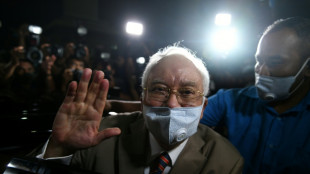
-
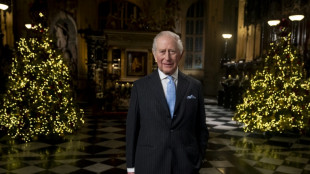 King Charles calls for 'reconciliation' in Christmas speech
King Charles calls for 'reconciliation' in Christmas speech
-
Brazil's jailed ex-president Bolsonaro undergoes 'successful' surgery

-
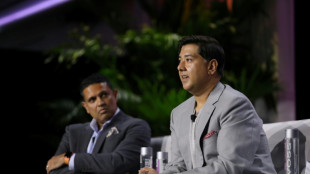 UK tech campaigner sues Trump administration over US sanctions
UK tech campaigner sues Trump administration over US sanctions
-
New Anglican leader says immigration debate dividing UK

-
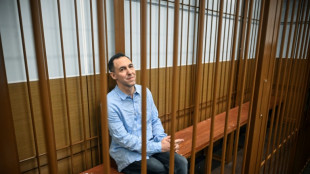 Russia says made 'proposal' to France over jailed researcher
Russia says made 'proposal' to France over jailed researcher
-
Bangladesh PM hopeful Rahman returns from exile ahead of polls

-
 Police suspect suicide bomber behind Nigeria's deadly mosque blast
Police suspect suicide bomber behind Nigeria's deadly mosque blast
-
AFCON organisers allowing fans in for free to fill empty stands: source

-
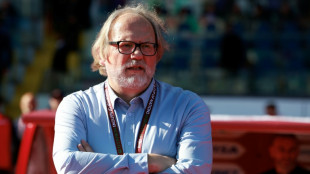 Mali coach Saintfiet hits out at European clubs, FIFA over AFCON changes
Mali coach Saintfiet hits out at European clubs, FIFA over AFCON changes
-
Last Christians gather in ruins of Turkey's quake-hit Antakya

-
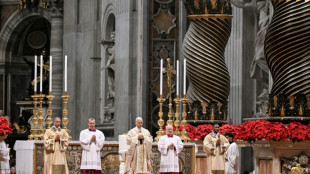 Pope Leo condemns 'open wounds' of war in first Christmas homily
Pope Leo condemns 'open wounds' of war in first Christmas homily
-
Mogadishu votes in first local elections in decades under tight security
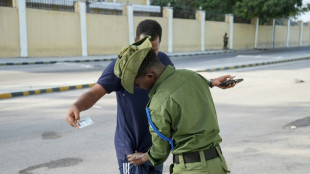
-
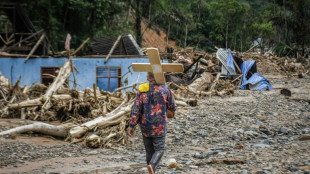 'Starting anew': Indonesians in disaster-struck Sumatra hold Christmas mass
'Starting anew': Indonesians in disaster-struck Sumatra hold Christmas mass
-
Cambodian PM's wife attends funerals of soldiers killed in Thai border clashes

-
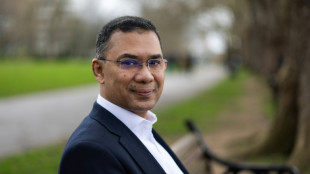 Prime minister hopeful Tarique Rahman arrives in Bangladesh: party
Prime minister hopeful Tarique Rahman arrives in Bangladesh: party
-
Pacific archipelago Palau agrees to take migrants from US
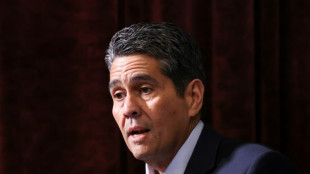

Germany's Scholz loses confidence vote, triggering early elections
Germany's centre-left Chancellor Olaf Scholz lost a confidence vote on Monday after weeks of turmoil, setting Europe's biggest economy on the path to early elections on February 23.
The Bundestag vote, which Scholz had expected to lose, allows President Frank-Walter Steinmeier to dissolve the legislature and formally order an election.
The crucial vote followed a fiery debate in which political rivals traded angry recriminations in a foretaste of the election campaign to come.
Embattled Scholz, 66, lags badly in the polls behind conservative opposition leader Friedrich Merz of the Christian Democratic Union (CDU) of ex-chancellor Angela Merkel.
After over three years at the helm, Scholz was plunged into crisis when his unruly three-party coalition collapsed on November 6, the day Donald Trump won re-election to the White House.
The political turbulence has hit Germany as it struggles to revive a stuttering economy hammered by high energy prices and tough competition from China.
Berlin also faces major geopolitical challenges as it confronts Russia over the Ukraine war and as Trump's looming return heightens uncertainty over future NATO and trade ties.
Those threats were at the centre of a heated debate between Scholz, Merz and other party leaders ahead of the vote in the lower house, in which 207 MPs backed Scholz against 394 who did not, with 116 abstentions.
After Scholz outlined his plans for massive spending on security, business and social welfare, Merz demanded to know why he had not taken those steps in the past, asking: "Were you on another planet?"
- 'Deplorable state' -
Scholz argued that his government had boosted spending on the armed forces which previous CDU-led governments had left "in a deplorable state".
"It is high time to invest powerfully and decisively in Germany," Scholz said, warning about Russia's war in Ukraine that "a highly armed nuclear power is waging war in Europe just two hours' flight from here".
But Merz fired back that Scholz had left the country in "one of the biggest economic crises of the postwar era".
"You had your chance, but you did not use it ... You, Mr. Scholz, do not deserve confidence", charged Merz.
Merz, a former corporate lawyer who has never held a government leadership post, lambasted the motley alliance of the chancellor's Social Democrats (SPD), the left-leaning Greens and the liberal Free Democrats (FDP).
Coalition bickering over fiscal and economic woes came to a head when Scholz fired his rebellious FDP finance minister Christian Lindner on November 6.
Scholz on Monday again lashed out at Lindner for the "weeks-long sabotage" that imploded the alliance and damaged "the reputation of democracy" itself.
The departure of Lindner's FDP left Scholz running a minority government with the Greens that has been limping along, unable to pass major bills or a new budget.
- 'Plagued by doubt' -
German politics in the post-war era was long staid, stable and dominated by the two big-tent parties, the CDU-CSU alliance and the SPD, with the small FDP often playing kingmaker.
The Greens emerged in the 1980s, but the political landscape has been further fragmented by the rise of the far-right Alternative for Germany (AfD), a shock for a country whose dark World War II history had long made right-wing extremist parties taboo.
The AfD has grown in the past decade from a eurosceptic fringe party into a major political force when it protested against Merkel's open-door policy to migrants, and now has around 18 percent voter support.
While other parties have committed to a "firewall" of non-cooperation with the AfD, some have borrowed from its anti-immigration rhetoric.
After the fall of Syrian president Bashar al-Assad, some CDU lawmakers were quick to demand that the around one million Syrian refugees in Germany return to their home country.
The election comes at a time "the German model is in crisis," said Berlin-based political scientist Claire Demesmay, of Sciences Po Paris.
Germany's prosperity "was built on cheap energy imported from Russia, on a security policy outsourced to the USA, and on exports and subcontracting to China", she told AFP.
Demesmay said the country was now in a sweeping process of reorientation which is "feeding fears within society that are reflected on the political level".
"We can see a political discourse that is more tense than a few years ago. We have a Germany plagued by doubt."
D.Moore--AMWN